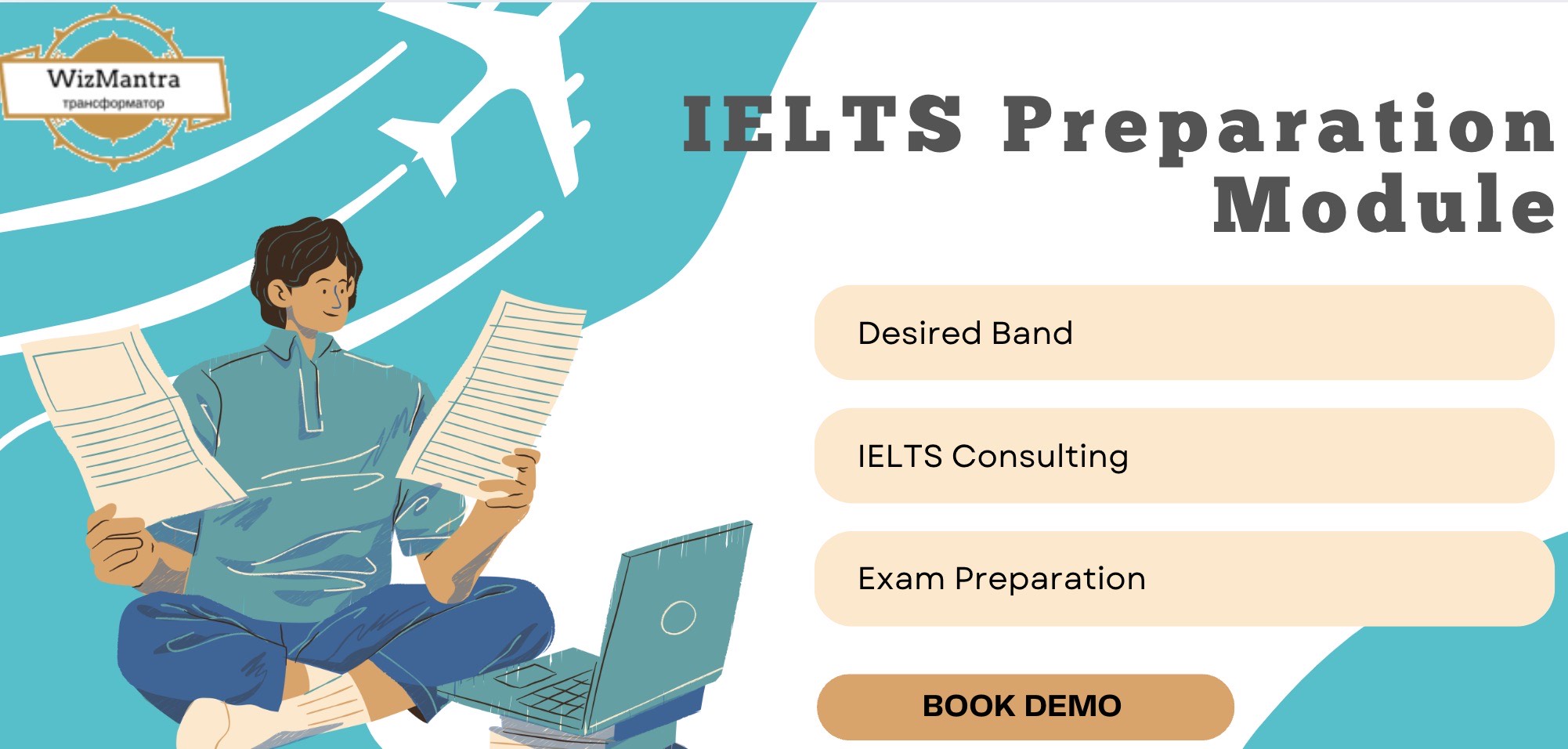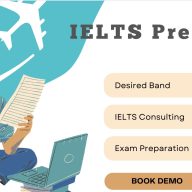How to Get Band 8 in Each Section of the IELTS Test | Ultimate Preparation Guide
How to Get Band 8 in Each Section of the IELTS Test?
Achieving Band 8 in the IELTS (International English Language Testing System) is a significant accomplishment. It represents a high level of English proficiency, where you can handle complex tasks with minimal effort. This score can open doors to global opportunities for higher education, skilled work, or permanent residency.
Reaching Band 8 requires consistent effort, strategic preparation, and a clear understanding of the IELTS test format. In this guide, we will provide detailed strategies, section-specific tips, and practical advice to help you achieve Band 8 in Listening, Reading, Writing, and Speaking.
Understanding Band 8 in the IELTS Test
Before diving into strategies, it’s important to understand what a Band 8 represents. According to the IELTS Band Descriptors:
- Listening & Reading: You need at least 35 out of 40 correct answers.
- Writing: Your responses should demonstrate well-organized ideas, a wide range of vocabulary, and a strong grasp of grammar.
- Speaking: You should exhibit fluency, a variety of sentence structures, and accurate pronunciation with only occasional errors.
1. Listening: How to Score Band 8
The Listening section includes four recordings and a total of 40 questions. It tests your ability to comprehend various English accents and extract information.
Key Strategies:
- Understand the Format:
- Recording 1: A conversation in a social context (e.g., booking tickets).
- Recording 2: A monologue (e.g., a speech about local facilities).
- Recording 3: A discussion in an educational context (e.g., group project discussion).
- Recording 4: A lecture or academic presentation.
- Practice Active Listening:
- Listen to BBC Radio, TED Talks, or IELTS Listening Practice Tests.
- Focus on different accents (British, Australian, American) to prepare for various pronunciations.
- Follow Instructions Closely:
- Pay attention to word limits. For example, “Write no more than two words” means a single error can cost you marks.
- Use Prediction Skills:
- Skim through the questions before the audio starts to predict the type of answers (names, dates, numbers, etc.).
- Handle Distractors:
- Be prepared for speakers to correct themselves mid-conversation. Listen for the final, accurate information.
Sample Daily Listening Practice:
| Activity | Duration | Example Resources |
|---|---|---|
| Listen to a podcast or TED Talk | 15 mins | TED Talks, Spotify Podcasts |
| Complete one practice test | 40 mins | Cambridge IELTS Practice Books |
| Review mistakes and re-listen | 15 mins | IELTS Test Answers + Audio Transcript |
Pro Tips:
- Shorthand Notes: Write down essential keywords rather than full sentences.
- Practice Multi-tasking: Train your ability to read questions, listen, and write simultaneously.
- Review Transcripts: Use official transcripts to analyze missed information and understand native speakers’ pace.
2. Reading: How to Score Band 8
The Reading section consists of three long passages and 40 questions. For General Training, the texts are practical, while the Academic test includes complex and analytical passages.
Key Strategies:
- Master Skimming and Scanning:
- Skim the passage for the main idea.
- Scan for specific keywords in questions and match them to sections in the passage.
- Understand Question Types:
- True/False/Not Given: Be cautious with “Not Given” questions. If the passage doesn’t provide information, don’t assume.
- Matching Headings: Focus on topic sentences and concluding sentences.
- Summary Completion: Pay attention to word limits and paraphrased expressions.
- Build Your Reading Speed:
- Use online tools like Spreeder to increase your reading pace.
- Read daily materials such as newspapers, journals, or blogs.
- Practice Time Management:
- Spend about 20 minutes on each passage.
- Skip difficult questions initially and return later if time permits.
Pro Tips:
- Highlight keywords in both the question and the passage.
- Read academic articles from websites like The Guardian, National Geographic, or The Economist.
- Familiarize yourself with different text types: narratives, descriptive texts, and opinion pieces.
3. Writing: How to Score Band 8
The Writing section often challenges test-takers the most. It consists of Task 1 (a report or letter) and Task 2 (an essay).
Task 1 Strategies (IELTS Academic & IELTS General Training):
- Academic:
- Summarize data from charts, graphs, or diagrams.
- Focus on trends, comparisons, and significant figures.
- General Training:
- Understand the tone: Use formal language for official letters and informal language for friends or family.
- Structure: Start with a clear introduction, followed by well-organized body paragraphs.
Task 2 Strategies (Essay Writing):
- Plan Before Writing:
- Spend 5 minutes planning your introduction, body paragraphs, and conclusion.
- Ensure your essay directly answers the question.
- Use a Variety of Sentence Structures:
- Combine simple, compound, and complex sentences.
- For example: “While some argue that technology isolates us, others believe it connects us globally.”
- Develop Ideas Clearly:
- Support arguments with examples, facts, or statistics.
- Avoid vague statements like “This is important.” Instead, say, “This is crucial because it improves efficiency.”
- Vocabulary Matters:
- Avoid repeating the same words. Use synonyms and topic-specific terms.
Common Pitfalls to Avoid:
- Underwriting: Write at least 150 words for Task 1 and 250 words for Task 2.
- Lack of Coherence: Use linking words (however, furthermore, in contrast) to maintain flow.
- Spelling Errors: Ensure accuracy, as even minor errors can lower your score.
4. Speaking: How to Score Band 8
The Speaking section is a 11–14-minute interaction with an examiner and includes three parts:
- Introduction & Interview: Answer personal questions about yourself.
- Cue Card: Speak for 1-2 minutes on a given topic.
- Discussion: Have an in-depth conversation based on the cue card topic.
Key Strategies:
- Fluency Over Accuracy:
- Don’t let small grammar mistakes slow you down. Prioritize maintaining a natural flow.
- Use fillers like “Let me think” or “That’s an interesting point”.
- Expand Your Vocabulary:
- Incorporate idiomatic expressions, such as “It’s a blessing in disguise” or “The ball is in your court.”
- Use topic-specific terms, especially for familiar subjects like travel or hobbies.
- Master Pronunciation:
- Focus on stress, intonation, and rhythm. Tools like Forvo or Speechling can help.
- Record your speech and identify areas for improvement.
- Prepare for Common Topics:
- Practice frequently asked topics, such as describing a favorite book, discussing a memorable trip, or talking about your hometown.
Pro Tips:
- Avoid memorized answers. The examiner values spontaneity and natural conversation.
- Speak at a comfortable pace—neither too fast nor too slow.
- Use examples to elaborate on your points, e.g., “For instance, when I visited Paris, I noticed…”
General Preparation Tips for Band 8
1. Take Regular Mock Tests
Simulate real test conditions to evaluate your readiness. Use resources like Cambridge IELTS Books or British Council Practice Tests.
2. Enroll in Professional Courses
Consider joining WizMantra’s IELTS preparation classes for personalized coaching and regular feedback.
3. Create a Study Schedule
Dedicate at least 2–3 hours daily for IELTS preparation:
- Listening: 30 minutes.
- Reading: 45 minutes.
- Writing: 1 hour.
- Speaking: 30 minutes.
IELTS Band 8 Success Stories
Case Study: How Rohan Achieved Band 8
Rohan, a software engineer, scored Band 7 in his first IELTS attempt. After enrolling in WizMantra, he focused on:
- Practicing cue cards daily for the Speaking test.
- Writing two essays weekly with detailed feedback.
- Simulating Reading tests to improve speed.
Result: Rohan achieved Band 8, securing his dream job in Australia.
Achieving Band 8 in IELTS is no easy feat, but it’s entirely possible with dedication and the right strategies. Focus on each section, practice consistently, and seek professional guidance when needed. With WizMantra’s expert training programs, you’ll have access to personalized coaching and tailored resources to help you succeed.
Ready to ace the IELTS? Start your journey with WizMantra today!








Leave a comment